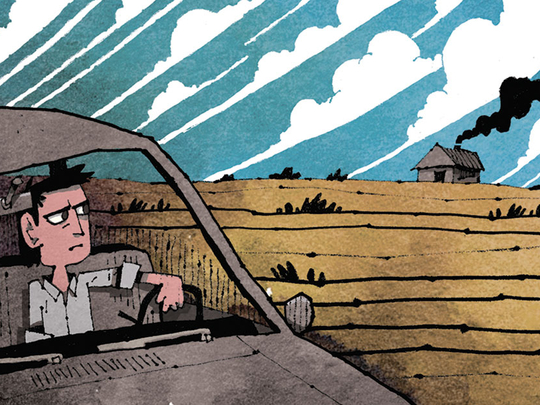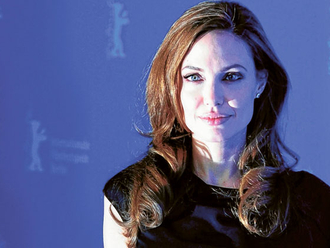
By Tim Winton, Farrar, Straus and Giroux, 288 pages, $16.75
The Shepherd’s Hut opens with teenage Jaxie Clackton tearing across the wild badlands of Australia’s arid west in a stolen car. “With the engine working up a howl and the wind flogging in the window [it] brings on this angel feeling. Like you’re just one arrow of light.” The setup is exhilarating, compelling: we are in Tim Winton country, and we are in for a ride.
A most enviable writer, both lauded and bestselling, Winton has a particular gift for making the vernacular lyrical. Four times winner of the Miles Franklin award, twice a Booker finalist, in his native Australia he is also an environmental campaigner and general moral compass. Resolutely blue collar — just like his characters — he walks the walk, donating the prize money from the first of his Franklins to saving a strip of reef; he has been made a National Living Treasure. Don’t be fooled by this cuddly title, however: for all its lyricism, the greatest virtue of Winton’s writing is its rawness.
His protagonists are always outsiders, beyond the pale, and The Shepherd’s Hut opens true to form. Jaxie’s father is “a deadest [expletive]”, and his mother was already lost to him years before her cancer. Jaxie and his dad now live in a small town where blind eyes are turned by cops and neighbours. No one would be surprised if the boy fought back against his father’s drunken beatings, but no one would help him, either. So when fate intervenes in the form of a faulty car jack, and Clackton Snr meets a suitably violent end crushed under his own ute, Jaxie knows who will be blamed. He cuts and runs, as his mother should have done years ago, because he is a survivor, and because he has someone to run to: shaven-headed, 15-year-old Lee, with one green eye and one grey.
She knows Jaxie better than anybody: he may be “a bull looking for a china shop, but when she’s around I don’t feel like that”. Love, especially young love, is where grace is found in Winton’s novels, but Lee is also Jaxie’s cousin, so his welcome at his aunt’s house — and therefore his chance of redemption — is uncertain. Before he can risk pitching up there, Jaxie must cross the saltflats and find a hideout in the barren endlessness — which is how we come to the hut of the title, and the second key character.
When Jaxie first sees him, Fintan MacGillis is slaughtering a goat and singing to himself. A gimlet-eyed defrocked Irish priest in shorts and singlet, MacGillis has been banished to the outback. For him, this is a form of penance; as far as the church is concerned, it is simply to keep him quiet. MacGillis receives supplies every six months or so, but this arrangement is so unorthodox, he is uncertain how long it will be honoured.
Faith is a quintessential Winton subject, so a fallen priest in the wilderness is his perfect character, bringing in the big themes: salvation, the greater good and the spirit beyond the self. Given the revelations of child abuse in recent years, however, MacGillis does present some difficulties: he protests a number of times that he is no “pedo”, adding intimations of financial impropriety to underline the point. These qualifications are necessary, but they still feel like impositions on the narrative: the temporal world elbowing its way into the eternal.
However, that MacGillis understands himself to be a sinner is clear; he and Jaxie are both in need of deliverance. Wary at first, they hunt, share meat and begin to share confidences. Here, the book is at its strongest: elegiac, transcendent — perhaps most remarkably so in their plain-spoken and blokeish exchanges. Like Patrick White, Australia’s Nobel laureate, whose European settler protagonists faced the new continent’s fierce beauty and came to believe in rock and soil and sun with far more certainty than the Christianity the old country had taught them, so Winton has his old-young pair stare out at the glow of the salt lake by moonlight — so glorious, so treacherous — and watch the stones “walking”.
“Oh man, you and them rocks.”
“Yes, I know lad. But listen, when they go all loose and watery in the heat […] sometimes I get the quare feeling they’ve come for me, to hold me to account.”
For a while, it seems there are only the two of them and the harsh and visionary splendour. But in this remoteness all manner of ugliness can conceal itself — and the worst of it is human. If he is to save himself, Jaxie must run again — but what of MacGillis? In the closing pages, everything converges — but to find out how, you’ll just have to read it.
–Guardian News & Media Ltd
Rachel Seiffert’s latest novel is A Boy in Winter (Virago).









